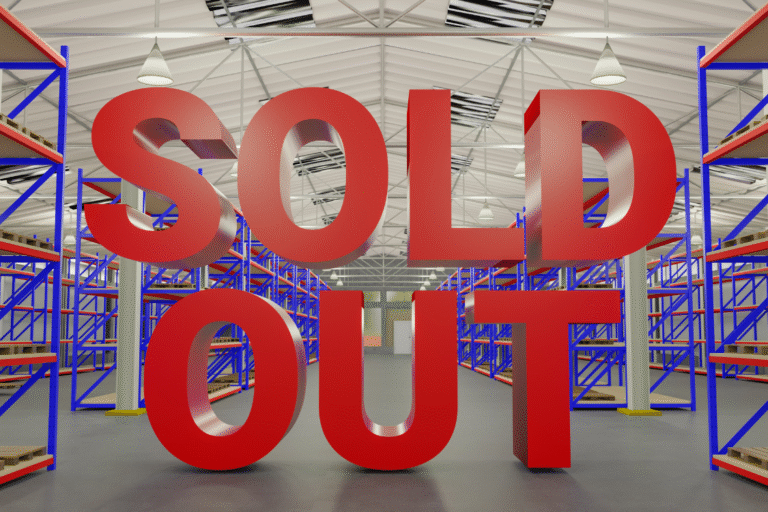What separates a successful supplement brand from one that struggles? Often, the answer comes down to the manufacturer you choose. Selecting between a family-owned vs corporate supplement manufacturer is more than comparing prices or production capacity. The choice influences your ability to protect quality, scale with demand, and build lasting trust with consumers.
Family-owned companies often emphasize tradition, flexibility, and personalized service, while larger corporate manufacturers offer vast resources, established systems, and a global reach. Each path comes with clear benefits and potential risks that can shape your growth and profitability.
The key is knowing which type of partner aligns with your brand’s values, goals, and long-term vision.
What’s the Difference Between Family-Owned and Corporate Manufacturers?
The primary difference between a family-owned supplement manufacturer and a corporate one comes down to size, focus, and operational approach. Each model shapes the way supplement companies handle ingredient sourcing, production processes, and customer service.
Family-owned manufacturers: Personalized and legacy-driven
Family-owned supplement companies usually operate on a smaller scale, serving a limited number of brands. Their focus is often on building trust, protecting quality, and maintaining long-term partnerships. Decisions often reflect a commitment to family reputation, which can help prevent shortcuts that might compromise quality. These manufacturers tend to highlight ingredient purity, streamlined formulas, and the avoidance of unnecessary fillers.
Corporate manufacturers: Scalable and system-driven
Corporate supplement companies generally manage large operations backed by investors or public shareholders. Their advantage lies in their resources, scalability, and ability to meet consumer demand across various market levels. With formalized processes, corporate manufacturers can produce supplements at high volumes and expand into global distribution. The tradeoff is less personalization, as corporations must balance growth, investor profit margins, and strict systems.

Comparing Values and Long-Term Vision
Values shape how supplement companies operate and the kind of support they offer. Examining what motivates each model reveals why the decision is crucial for your supplement brand’s success.
What values do family-owned businesses typically prioritize?
Family-owned supplement manufacturers often stress trust, craftsmanship, and long-term value. They see relationships with customers as part of a shared wellness journey, not just a transaction. Many put focus on active ingredients, third-party testing, and a transparent disclosure process to protect brand reputation. Their commitment to quality can make them a strong choice for supplement brands that want to emphasize transparency and integrity in their products.
What drives corporate manufacturers?
Corporate supplement companies focus on efficiency, scaling into new markets, and satisfying investor expectations. Profit margins, growth, and systemized production processes often take precedence over personal service. While this approach provides brands with access to advanced equipment and research capabilities, it can also mean that decisions lean toward profitability over personalization. For some supplement companies, that tradeoff is worth the advantage of broader reach and resources.
Flexibility and Decision-Making: Who Moves Faster?
Flexibility can determine how quickly your supplement brand can adapt to customer demand or update formulas. The difference between family and corporate structures plays a major role in decision-making speed.
Family-owned = faster, more personalized decisions
Family-owned businesses tend to act quickly because there are fewer approval layers. Owners and senior staff are typically closely involved in the process, which enables faster adjustments to ingredient sourcing or changes in nutrients. For supplement brands testing new formulas or responding to trends, this ability to adapt quickly can be a major advantage.
Corporate = more process, less flexibility
Large corporations follow set policies, and requests often move through multiple departments. Special production processes, formula adjustments, or custom packaging may require additional time to approve. While this protects consistency and reduces mistakes, it can frustrate smaller brands that need quick turnarounds. For companies focused on innovation and agility, these delays may slow growth.

Service and Communication: What Can You Expect?
The way manufacturers communicate absolutely affects how smooth your partnership feels. Family-owned vs corporate supplement manufacturers differ in how they manage customer support and relationships.
Family-owned: Direct access and consistent contacts
In family-owned businesses, you often gain access to owners or senior managers who stay closely involved in your project. This consistency builds trust and knowledge over time, as the same people understand your supplement brand’s history and goals. When you invest in this kind of partnership, the conclusion is often a stronger collaboration that saves both time and money. For many supplement brands, direct lines of communication can make business life easier, helping avoid missteps and ensuring service stays personal.
Corporate: Structured support teams
Corporate manufacturers usually assign account managers or customer service representatives. While this structure ensures someone is always available, contacts may rotate as staff change roles. Communication is more formal and often managed at different levels within the organization, which can create distance between the supplement brand and the people handling daily operations. The benefit is predictable support, but the drawback is less personal connection.
Stability and Risk: Which Is More Reliable?
Stability in the supplement industry depends on both financial strength and leadership. Each type of manufacturer carries unique strengths and risks.
Are family-owned manufacturers more stable?
Family-owned supplement companies often have consistent leadership, with decisions shaped by long-standing commitment rather than short-term profit. Many have employees who remain for years, building knowledge and supporting product consistency. The risk comes when demand exceeds capacity, as smaller companies may have limited resources to expand quickly. This can impact a brand’s ability to scale when the market demands growth.
Are corporate manufacturers safer during growth or downturns?
Corporate supplement companies often have more resources, financial backing, and backup systems in place. These factors enable them to manage large orders or weather market shifts. Some operate with a structure similar to big pharma, where strict processes and investor oversight drive decisions. However, corporations answer to shareholders, which can lead to mergers, layoffs, or restructuring. For supplement brands, this means stability may come with less control over the process or sudden changes in service.

Which One Is Right for Your Supplement Brand?
The right partner depends on your goals, growth stage, and values. Both family-owned and corporate supplement companies can help you succeed, but the best fit depends on what matters most to your business.
Choose a family-owned manufacturer if…
You want personalized service, long-term partnership, and close alignment with your values. These businesses often support brands that emphasize wellness, purity of active ingredients, and trust with consumers.
Choose a corporate manufacturer if…
You aim for rapid growth, need high-volume production runs, or plan to expand into global markets. Corporate supplement manufacturers provide access to advanced production processes and larger distribution networks, making them better suited for brands with ambitious scaling plans.
Questions to Ask When Deciding Between the Two
Choosing a supplement manufacturer is a major investment in your brand’s future. Asking the right questions helps you avoid mistakes and find the best fit.
- What is your company’s ownership structure?
- How are decisions made when issues arise?
- Will I work with a dedicated contact person?
- How do you handle scaling up production?
- How long have your clients been with you?
These questions reveal not only how a company operates but also how committed they are to supporting your success over time.

Choose a Manufacturer That Aligns With Your Brand Vision
Selecting between a family-owned and a corporate supplement manufacturer comes down to more than cost or production capacity. Family-owned businesses often provide personalized service, trust, and a focus on quality, while corporate supplement companies bring scalability, resources, and global market access. The most successful supplement brands weigh these differences against their own growth goals, values, and customer demands to develop strategies that are both sustainable and profitable. Regardless of the path you take, building a strong partnership rooted in transparency, commitment, and a shared vision will play a crucial role in achieving long-term success.
Frequently Asked Questions
What is the main difference between a family-owned and a corporate supplement manufacturer?
Family-owned supplement companies prioritize personal relationships and long-term quality, whereas corporate manufacturers focus on scalability, resources, and profit margins.
Are family-owned supplement manufacturers better for new supplement brands?
Family-owned manufacturers often support small brands with flexible service, direct communication, and custom production processes.
Do corporate supplement companies have more resources than family-owned ones?
Yes, corporate manufacturers generally provide greater access to equipment, research, and global distribution channels.
Is it easier to build trust with a family-owned supplement manufacturer?
Family-owned businesses often make it easier to build consistent relationships, as you typically work directly with owners or senior staff.
Can a family-owned manufacturer meet the high-volume demand for supplements?
Some family-owned companies can scale production, but corporate manufacturers typically handle large orders more efficiently.
References
- Office of Dietary Supplements, National Institutes of Health. (2023, January 4). Dietary Supplements: What You Need to Know (Fact Sheet for Consumers). https://ods.od.nih.gov/factsheets/WYNTK-Consumer/
- U.S. Food and Drug Administration. (2024, April 24). Current Good Manufacturing Practices (CGMPs) for Food and Dietary Supplements. https://www.fda.gov/food/guidance-regulation-food-and-dietary-supplements/current-good-manufacturing-practices-cgmps-food-and-dietary-supplements





